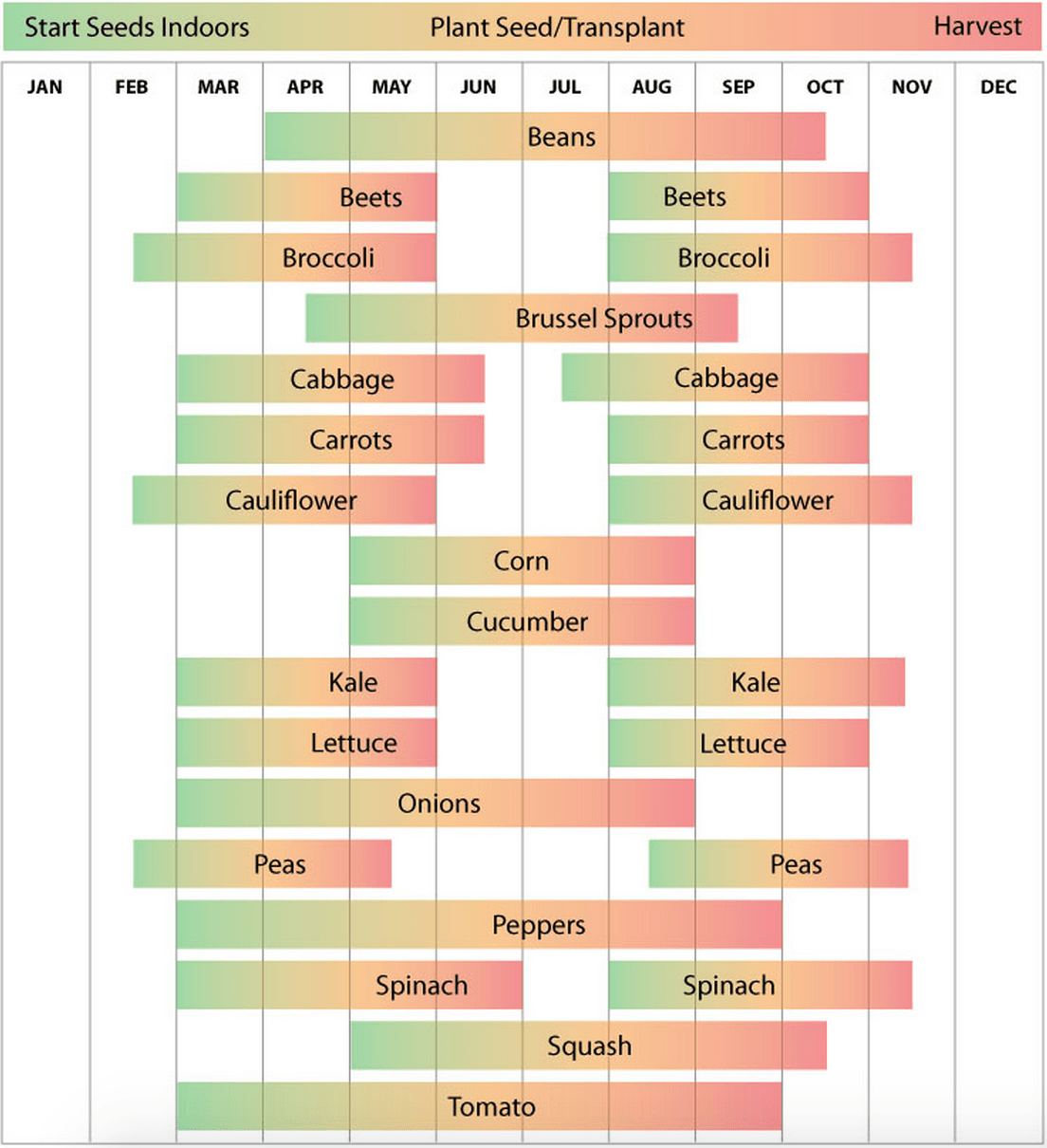Ever dreamt of plucking crisp lettuce from your garden as the leaves turn golden? Or maybe savoring the sweet bite of a freshly harvested carrot in the crisp autumn air? Fall gardening offers a unique opportunity to extend your growing season and enjoy a second harvest of delicious, homegrown vegetables. It’s a chance to reconnect with nature, embrace the changing seasons, and experience the sheer joy of cultivating your own food, even as summer fades.
Fall gardening isn't just an extension of summer; it's a whole different ballgame. Cooler temperatures, shorter days, and the impending frost present unique challenges and opportunities for the intrepid gardener. But don't let that intimidate you! With a little planning and the right knowledge, you can create a thriving fall vegetable garden that rivals your summer bounty.
Historically, fall gardening was a vital practice for communities reliant on preserving food for the winter months. Root cellars overflowing with carrots, potatoes, and other hardy vegetables were a testament to the ingenuity and resourcefulness of generations past. Today, fall gardening continues to be a rewarding practice, offering a connection to these traditions and a way to enjoy fresh, locally grown produce long after the summer farmers' markets have closed.
One of the biggest challenges of fall gardening is timing. You need to carefully select vegetables that can withstand cooler temperatures and mature before the first hard frost arrives. Understanding your local climate and the average first frost date is crucial for planning your fall garden. Choosing the right varieties is equally important. Some vegetable varieties are specifically bred for fall planting, offering improved cold tolerance and faster maturation times.
So, what vegetables are suitable for fall planting? Leafy greens like spinach, kale, and lettuce thrive in cooler temperatures. Root vegetables such as carrots, beets, and radishes also enjoy the crisp autumn air. And don't forget about brassicas like broccoli, cauliflower, and cabbage, which can tolerate light frosts.
Benefits of fall gardening include extended harvests, improved flavor in some vegetables (like kale, which gets sweeter after a frost), and the ability to enjoy fresh produce when much of the summer harvest is gone. For example, planting spinach in early fall can provide you with fresh greens throughout the autumn and even into early winter in some climates. Similarly, fall-planted carrots often develop a sweeter flavor after experiencing a few light frosts.
Creating a successful fall garden starts with choosing the right location. Select a spot that receives at least six hours of sunlight per day. Prepare the soil by adding compost or other organic matter to improve drainage and fertility. Start seeds indoors or purchase seedlings from a local nursery to give your plants a head start. Be sure to water regularly and protect your plants from pests and diseases.
Advantages and Disadvantages of Fall Gardening
| Advantages | Disadvantages |
|---|---|
| Extended growing season | Shorter daylight hours |
| Cooler temperatures ideal for some crops | Risk of frost damage |
| Fewer pest problems | Slower growth rates |
Best practices for fall gardening include: (1) knowing your first frost date; (2) selecting appropriate varieties; (3) amending the soil with compost; (4) providing adequate water; and (5) protecting plants from pests.
Real-world examples: gardeners in the Pacific Northwest can successfully grow kale and Brussels sprouts well into winter, while those in the Southeast might focus on lettuce and spinach. Experiment to see what works best in your region.
Challenges can include unpredictable weather and pest infestations. Solutions include using row covers for frost protection and implementing natural pest control methods.
FAQs: When should I start my fall garden? What are the best fall vegetables for my region? How do I protect my plants from frost? Can I plant seeds directly in the ground in the fall? And so on.
Tips: Plant in succession for a continuous harvest. Use mulch to retain moisture and suppress weeds. Monitor for pests and diseases regularly.
Fall gardening offers a unique and rewarding way to extend the joys of growing your own food. By understanding the nuances of fall planting, selecting the right vegetables, and implementing best practices, you can create a vibrant and productive garden that provides fresh, flavorful produce well into the autumn months. Embrace the crisp air, the changing colors, and the satisfaction of harvesting your own delicious vegetables as the days grow shorter. Start planning your fall garden today and experience the magic of the autumn harvest firsthand. Don't miss out on the opportunity to savor the flavors of fall, straight from your backyard!
Rock your world mastering music playlists in windows 10
Unlock your towing potential decoding vehicle towing capacity by vin
Unlocking albanys potential exploring enterprise in westover
When To Plant Veggies In Iowa at Alan Morrow blog - Khao Tick On
7 Vegetables to plant for your fall garden - Khao Tick On
Sacramento Vegetable Planting Calendar - Khao Tick On
21 Vegetables for the Fall Garden - Khao Tick On
What To Plant In November Zone 8 at David McGary blog - Khao Tick On
What Is A Fall Garden at Rosa Mills blog - Khao Tick On
Planting Calendar For Zone 7a - Khao Tick On
When Should I Plant My Seeds For My Garden at Lillian Petersen blog - Khao Tick On
When To Plant Veggies In Arkansas at Roxanne Merritt blog - Khao Tick On
What Is The Growing Zone For Ohio at Deborah Staggs blog - Khao Tick On
What Are The Best Vegetables To Plant In January at Rita Anderson blog - Khao Tick On
8 Best and Easiest Fall Vegetables to Plant in the Late Summer and - Khao Tick On
Zone 9 Vegetable Planting Calendar - Khao Tick On
Beets Companion Plant at Kevin Fisher blog - Khao Tick On
What Vegetables Can I Grow In Zone 9B at Corey Crisp blog - Khao Tick On














